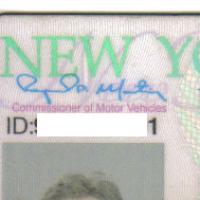訊息: 10
語言: English
invladimir (顯示個人資料) 2006年12月21日下午12:26:01
"ree" or "scii", how are the "ee" pronounced? LIke we do in English, or do I say "e" twice?
Kwekubo (顯示個人資料) 2006年12月21日下午2:26:51
Rough pronunciations:
ree = rey-ey
scii = s-tsee-ee
awake (顯示個人資料) 2006年12月21日下午3:31:49
http://en.lernu.net/lernado/gramatiko/konciza/elpa...
which has some sound files with examples. Just remember that in esperanto every letter is pronounced and it is pronounced the same way (the only exceptions being the oj, ej, aj uj, eŭ, and aŭ dipthongs which have their own sounds).
so scii, for example is ss-ts-EE-ee. The ss-ts sound doesnt occur in english at the beginning of words as it can in Esperanto, but it does occur.
For example, say "must see" (as in "you must see that movie") take off the mu and you have the perfect s-ts-ee sound. add another ee and you have s-ts-ee=ee (scii)
There are a few other tricky combinations for english speakers:
kn (knabo) k and n must both be pronounced (kuh-NAH-bo)
kv (kvalito) -> kuh-val-EE-to
gv (gvido) -> guh-VEE-do
Kwekubo:You pronounce the vowel twice; every letter and vowel sound in a word is pronounced fully in Esperanto.
Rough pronunciations:
ree = rey-ey
scii = s-tsee-ee
erinja (顯示個人資料) 2006年12月22日下午2:19:22
awake:There are a few other tricky combinations for english speakers:I'm sure you know this, awake, but just so it's clear to everyone - the k and v in "kvalito" are not pronounced as separate syllables. I would transliterate perhaps as "k'vah-LEE-to" and "g'v-EE-do"; "kvalito" is a three syllable word, "gvido" is two-syllable. (the same way that "strange" is one syllable in English, even though str is all in a clump; we're just used to pronouncing them all as one since we speak English natively, but this str combination is very difficult for speakers of some languages)
kn (knabo) k and n must both be pronounced (kuh-NAH-bo)
kv (kvalito) -> kuh-val-EE-to
gv (gvido) -> guh-VEE-do
pastorant (顯示個人資料) 2006年12月22日下午9:23:45
erinja: but this str combination is very difficult for speakers of some languages)Hehe. I studied Squamish in graduate school (a Salishan North American Indian language), and it is known to make the best language acrobats cry. There are consonant cluster that will make a lingual contortionist cringe.
nəxʷsƛ̕áy̕əm̕ ƛ̕éʔ . sq̕ʷúŋiʔ x̣ə́ɬ čúxʷt
[Squamish is fun, but my head hurts]

RiotNrrd (顯示個人資料) 2006年12月22日下午11:25:25
pastorant:nəxʷsƛ̕áy̕əm̕ ƛ̕éʔ . sq̕ʷúŋiʔ x̣ə́ɬ čúxʷtMany years ago I had a computer with a bad disk drive that apparently spoke Squamish from time to time.

pastorant (顯示個人資料) 2006年12月23日上午9:23:31
RiotNrrd:Hehepastorant:nəxʷsƛ̕áy̕əm̕ ƛ̕éʔ . sq̕ʷúŋiʔ x̣ə́ɬ čúxʷtMany years ago I had a computer with a bad disk drive that apparently spoke Squamish from time to time.

erinja (顯示個人資料) 2006年12月23日下午12:41:35
pastorant:These look like IPA phonetics; does Squamish not have its own alphabet?
nəxʷsƛ̕áy̕əm̕ ƛ̕éʔ . sq̕ʷúŋiʔ x̣ə́ɬ čúxʷt
[Squamish is fun, but my head hurts]
Zumanto (顯示個人資料) 2006年12月23日下午1:58:29
erinja:A lot of indigenous languages have been given IPA-based alphabets. While those sorts of alphabets might be phonemically (and even phonetically) accurate, they're often not very aesthetically pleasing.pastorant:These look like IPA phonetics; does Squamish not have its own alphabet?
nəxʷsƛ̕áy̕əm̕ ƛ̕éʔ . sq̕ʷúŋiʔ x̣ə́ɬ čúxʷt
[Squamish is fun, but my head hurts]
But, for most of these languages, they have few if any native speakers left and are in danger of extinction. Many groups are involved in language programs to try to save their languages. I worked in a group that took some data from the last speaker of a language. That was kind of weird.
Anyway, I think these alphabets are often more for the linguists than for the regular people. Look at some of the earlier romanisation systems for Chinese and you get the same thing (not surprisingly, the romanisation the Chinese chose for themselves is much more usable and natural-looking).
invladimir (顯示個人資料) 2006年12月27日下午1:43:44
Thanks again,
Scott





